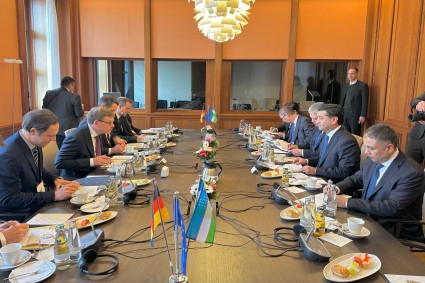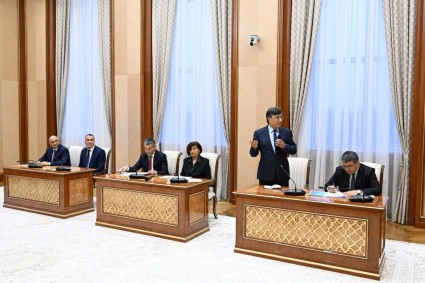The US Treasury announced new sanctions against the Russian Federation, which will affect the CIS countries. The announced sanctions by the US, EU and other countries will affect Russian purchases of dual-use goods. It also includes refrigerators or microwave ovens.
Now, such imports give Moscow access to semiconductors that are needed for weapons. Currently, despite the sanctions, the Russian authorities can buy any product they need through the so-called parallel imports, and many CIS countries are actively involved in this process.
Earlier it was reported that exports from the European Union of goods that were subject to restrictions on the supply to the Russian Federation to neighboring six countries, including Uzbekistan, increased by 95% (nearly doubled), while their supplies to Russia were expected to decrease by 71%. Experts said that "anomalies" were found in trade relations between Uzbekistan and the Russian Federation.
Then Zemlis-Balevichus, head of data research at Euromonitor International, suggested that a significant part of the increased exports to neighboring countries of the Russian Federation is redirected to Russia. This hypothesis agrees with the conclusions that have already been voiced in the US study: according to analysts from the non-governmental organization Silverado, a number of countries (including Turkey and some CIS countries) have become "transshipment points" for the import of household appliances and electronics to Russia.
Now the US and its allies are set to announce new sanctions against Russia in the coming days. This statement was made by Deputy Secretary of the Treasury Wally Adeyemo on Tuesday, February 21, speaking before the Council on Foreign Relations.
Sanctions by the United States, the European Union and other countries will affect Russian purchases of dual-use goods such as refrigerators or microwave ovens, he added. Such imports give Moscow access to semiconductors needed for weapons, Reuters notes.
Sanctions will also be aimed at preventing the transfer of oil and other sanctioned goods through countries bordering the Russian Federation, Adeyemo said. He did not provide details.
In addition, officials from more than 30 countries will issue a warning to companies, financial institutions and individuals doing business with Russia, said the deputy secretary of the US Treasury.
According to him, the continuation of such a business will result in penalties.
“We will force those who do not comply with our sanctions and export controls to choose between their economic ties with our coalition of countries that account for more than half of global GDP, and the provision of material support to Russia, whose economy is becoming more isolated every day,” – emphasized the American official.
The goal is to further increase the cost to Russia of evading sanctions and trying to get around the oil price ceiling imposed by the G7 states and Australia, Adeyemo explained. Moscow has already been forced to divert billions of funds from the war against Ukraine to pay for oil tanker insurance, shipping and other services, Washington will look for "additional ways to increase" these costs, the US Treasury deputy secretary said, without elaborating.
Russia's economic data at the start of the war looked better than expected, Adeyemo admitted. However, Russia's economy, a year after the invasion of the neighboring country, "looks more like the economy of Iran and Venezuela than a member of the G20," he said.
At the same time, Washington is concerned about deepening ties between Russia and China, the US official added. But Beijing cannot provide Moscow with the advanced semiconductors it needs to replace military equipment lost since the start of the war, Adeyemo said.














